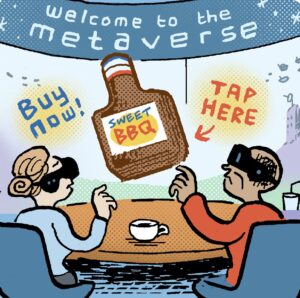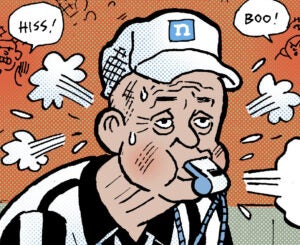Google revealed Tuesday that it would introduce a $35-per-month, ad-supported streaming service called YouTube TV, but will it take off with content owners and advertisers?
Google has a good chance of success if it gets enough subscriptions to rival traditional pay TV networks plagued by cord-cutting, sources say.
But that shouldn’t be a tall order for Google, according to one buyer, who foresees a challenging year ahead for traditional MVPDs that aren’t diversifying their business models. (Comcast, which has introduced apps such as Xfinity Stream, is a good example of how to evolve.)
Streaming TV services like Hulu, PlayStation Vue, Sling TV and now YouTube TV are the way of the future, as they’re more flexible than traditional MVPDs, said Seth Walters, senior partner for interactive and connected TV for GroupM’s Modi Media.
But Google faces steep competition from other streaming TV services (and Facebook, which is also developing a TV app) jockeying for market share.
The competitive space makes Walters think Google will focus initially on audience growth.
“Obviously there will be premium YouTube content infused in broadcast programming, which should create new opportunities for brands to reach and engage TV audiences,” he said. “I’m also interested to see if and how they incorporate YouTube TV into existing video buys.”
But if Google builds a sizable subscriber footprint, he predicts it will roll out deeper features and capabilities that leverage the broader Google “stack.”
Richie Hyden, co-founder and COO of publisher video platform Iris.tv, agreed.
“In advertising, they have a clear advantage through [their ad server] DoubleClick For Publishers and reach with agencies, so [the development of YouTube TV] makes a lot of sense,” he noted. “The con is tied to content and how long they can hold leverage over the cable and broadcast publishers with their audience scale and the payment and rev share they provide back to them.”
But Google has one major selling point when it comes to attracting content providers: YouTube’s ability to showcase more personalized video.
“That [ability has] enabled them to build, retain and monetize their audience – something cable and broadcasters haven’t figured out how to do in digital yet,” Hyden added.
Although it’s too early to determine the extent of YouTube TV’s content library and its ability to monetize, Modi’s Walters said he’s most compelled by YouTube TV’s potential to capture and measure TV-inspired search.
“Fundamentally, Google can enhance [search bids] while targeting [a TV ad] to the user, all while optimizing toward conversion,” he added.














